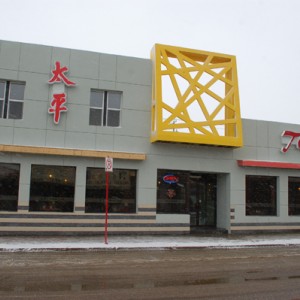The Aging Personality
Midlife Crisis or Re-Evaluation? An Example
In my last column, I said I would give an example of someone in the first phase of aging, called the re-evaluation phase (In The Mature Mind by Gene Cohen). In this phase, from about age 50 into the early 60s, people re-examine their lives, changing and adding activities (or not). This would be the phase where people with addiction issues take one last stab at trying to address that problem.
For me, the need for increased physical activity became apparent and I started yoga, the perfect slow moving exercise for an avowed couch potato. In this column, I describe the life changes of a 55 year old friend of mine, Dr. Daria Shewchuk.
In many ways her story is typical of the waves of immigrants that arrive and sweep through McCauley. Her family were refugees from the Ukraine arriving after WWII. Though born in Canada, as a preschooler she didn’t speak English until she started school at Sacred Heart. Like many others she was beaten until she spoke English.
Making a life in a new country for many refugee families, then and now, was difficult and filled with tragedy. When she was 16 her parents were in a traffic accident. Her father was killed and her mother spent many months in the hospital and subsequently decided to enter a convent, leaving Daria to raise her five younger siblings. She married and had two children of her own and also raised one of her nephews.
During this extended period of parenting Daria was always connected to McCauley, living here, working at Bissell Centre or visiting with friends and family who continued to live in the neighbourhood. One brother and his family still live in the neighbourhood in the family home built by her grandfather.
While raising her multigenerational family, she both worked and studied, obtaining social work degrees. Once her children were grown, she completed a doctorate in psychology and since has had a counselling practice.
When she was turning 50, Daria was well established in Edmonton professionally and personally but knew that it was time to make a move to the west coast. This was partly driven by health issues as the cold weather made her fibromyalgia flare. She sold her Norwood home, left her job with Capital Health, closed her private practice and moved to Vancouver. This was definitely a bold move at age 52 but in keeping with the re-evaluation stage. In this stage, there is that sense of now or never, particularly on the larger issues of what, where and now.
Getting established in her new chosen community and developing new relationships has proven to be a continued challenge for Daria, but on the whole the move has been good. She has re-established her private counselling practice and her health, while still troublesome, tends to be easier to manage in the milder west coast climate. Daria’s re-evaluation of her life at 50 resulted in elements of both change and continuity.
This is the stage where knowledge and skills are well developed and so there is new opportunity for growth and change. In this age, we know our real potential. Furthermore, because of our brain development we are emotionally more stable.
She moved but re-established a counselling practice. Her connection with her family remains strong as her role as matriarch of the two generations of children continues. One of her brothers, who also lived on the west coast, died this past October and Daria was his primary caregiver during his last year. His death was a big loss for her as it was the death of one of the siblings she parented.
There are many other examples of people making big changes at this stage in their lives. Another friend of mine finally had the courage to leave his unhappy marriage; another talks of needing to add greater fulfillment in her work. And another finally said, “I am not going to tolerate my bully boss anymore” and found a new job after 25 years in the same place.
This is the stage where knowledge and skills are well developed and so there is new opportunity for growth and change. In this age, we know our real potential. Furthermore, because of our brain development we are emotionally more stable. This is the stage where some earlier activities such as child rearing are nearing an end and we can consider other possibilities. And so in their 50’s individuals have the opportunity to really examine and re-evaluate their lives and make changes. And they do.
Next month I will describe the next stage of liberation. This is the really fun time.
Sherry lives in McCauley. She is a block carrier for the paper.






